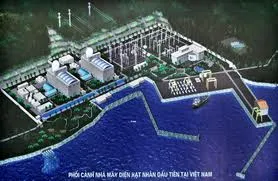
Energy fund to ease govt control on Vietnam power industry
Saigon Asset Management Corp. plans to raise $300 million for an energy fund that would be the country’s largest.
The firm is reviewing about a dozen thermal and hydropower projects in Vietnam that its energy fund might invest in.
This was revealed by Kevin Flaherty, managing director of the company’s energy and natural resources investments. It is also pursuing developments in Laos and Cambodia.
Vietnam is aiming to reduce government control in the power industry and implement a market-pricing system to attract foreign investments. The country announced this month an energy development plan that includes spending $45 billion to more than triple its electricity generation capacity through the end of the decade.
“If you look at growth over the next two decades, this is a good sector to be in,” Flaherty said. “There’s a clear understanding from the decision makers that the sector needs fairly-priced tariffs that will provide a reasonable rate of return and encourage investors.”
Saigon Asset Management plans to begin meeting investors to raise capital for the fund late next month, Flaherty said. The firm currently manages two funds totaling $125 million, said its chief executive officer, Louis Nguyen, who’s a former managing director of Vietnam’s biggest fund manager, VinaCapital Investment Management Ltd.
“At the moment, there are massive monopolies and state control of the economy. That’s shifting haltingly toward a more competitive landscape,” said Giles Cooper, a lawyer for Duane Morris Vietnam LLC, which works with power investors in the country.
Separately, Saigon Asset Management has signed an initial agreement with An Khanh Electricity Joint Stock Co. to invest in two coal-fired thermal power plants in northern Vietnam, Flaherty said.
Vietnam wants to raise generation capacity to 75,000 megawatts by 2020 from 21,600 megawatts in 2010.








![Cross Domain [Manu + SBR + ABF + ABR + FMCG + HBR + ]](https://cmg-qa.s3.ap-southeast-1.amazonaws.com/s3fs-public/styles/exclusive_featured_article/public/2025-01/earth-3537401_1920_4.jpg.webp?itok=WaRpTJwE)
![Cross Domain [SBR + ABR]](https://cmg-qa.s3.ap-southeast-1.amazonaws.com/s3fs-public/styles/exclusive_featured_article/public/2025-01/pexels-jahoo-867092-2_1.jpg.webp?itok=o7MUL1oO)









 Advertise
Advertise


